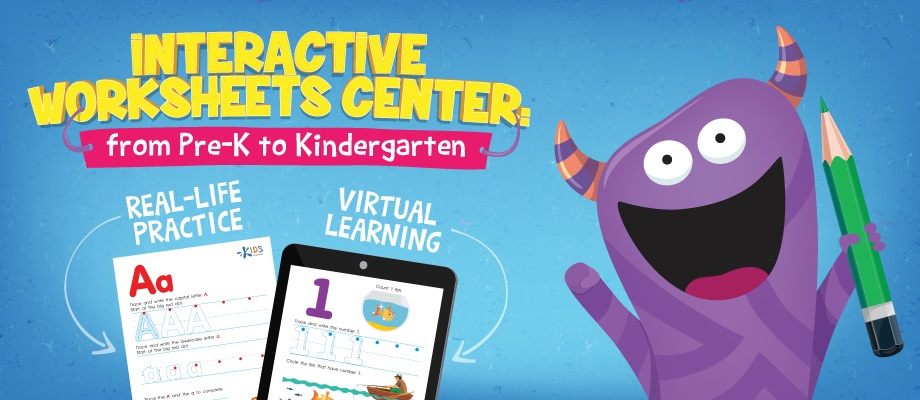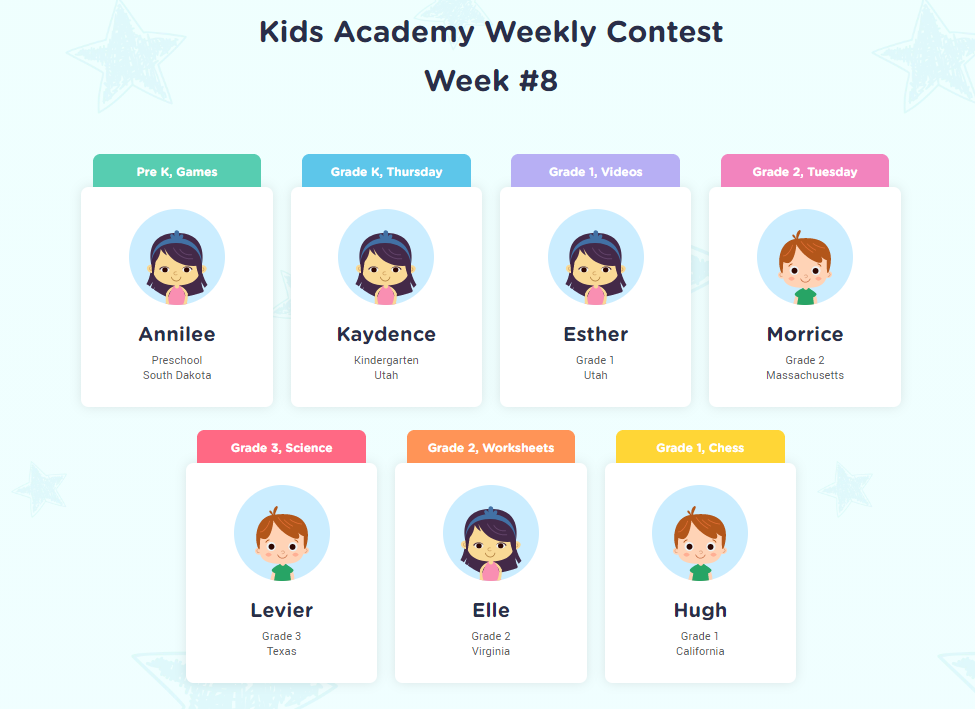Number Recognition Chess Worksheets for Ages 3-6
4 filtered results
-
From - To
Looking to make learning numbers fun for your little ones? Our "Number Recognition Chess Worksheets for Ages 3-6" seamlessly blend education with play! Designed especially for preschoolers, these engaging worksheets help children recognize and understand numbers through the strategic game of chess. Each worksheet encourages critical thinking and number skills as children identify numbers associated with various chess pieces and positions. Perfect for young learners, this effective learning tool promotes early math skills while keeping the young minds curious and entertained. Download today to elevate your child's number recognition and create countless hours of educational fun!
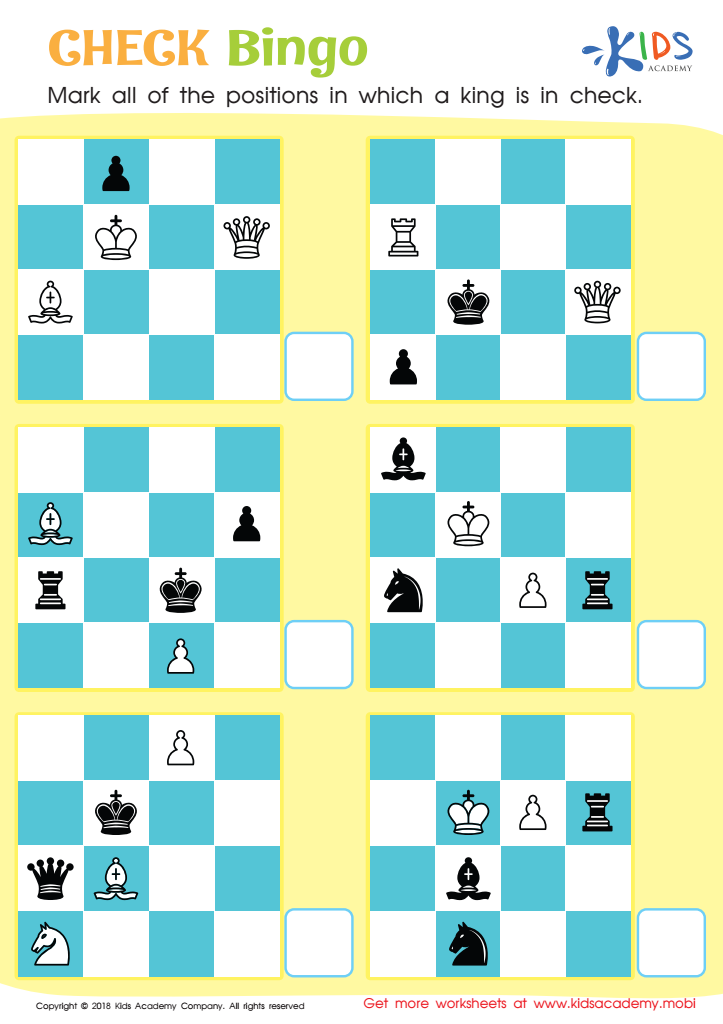

Check Bingo Worksheet
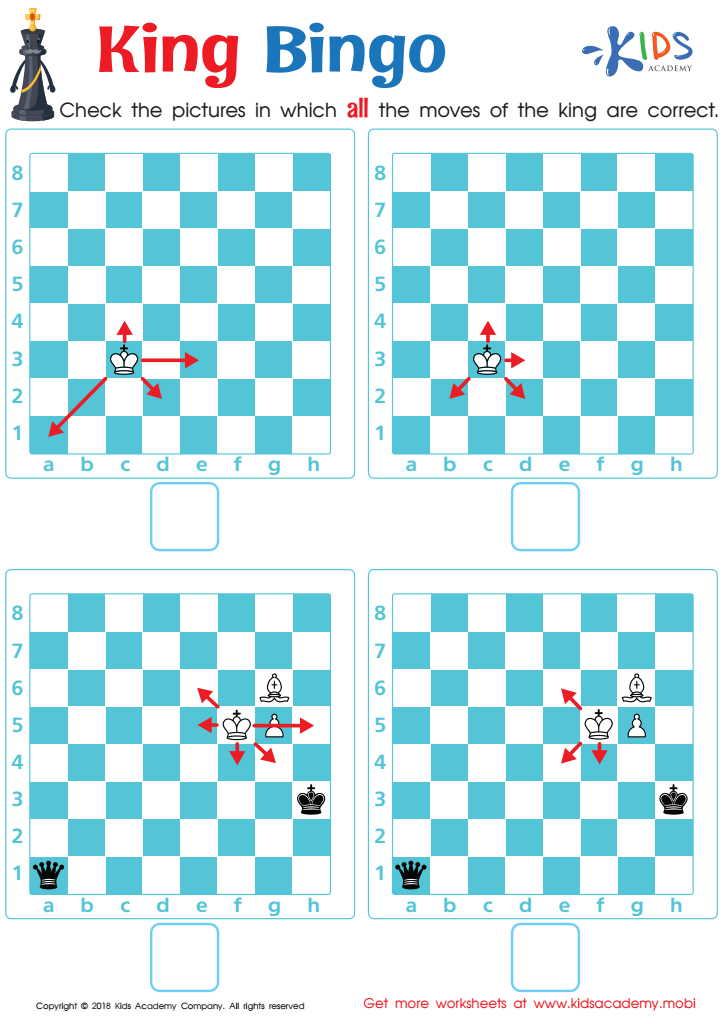

King Bingo Worksheet
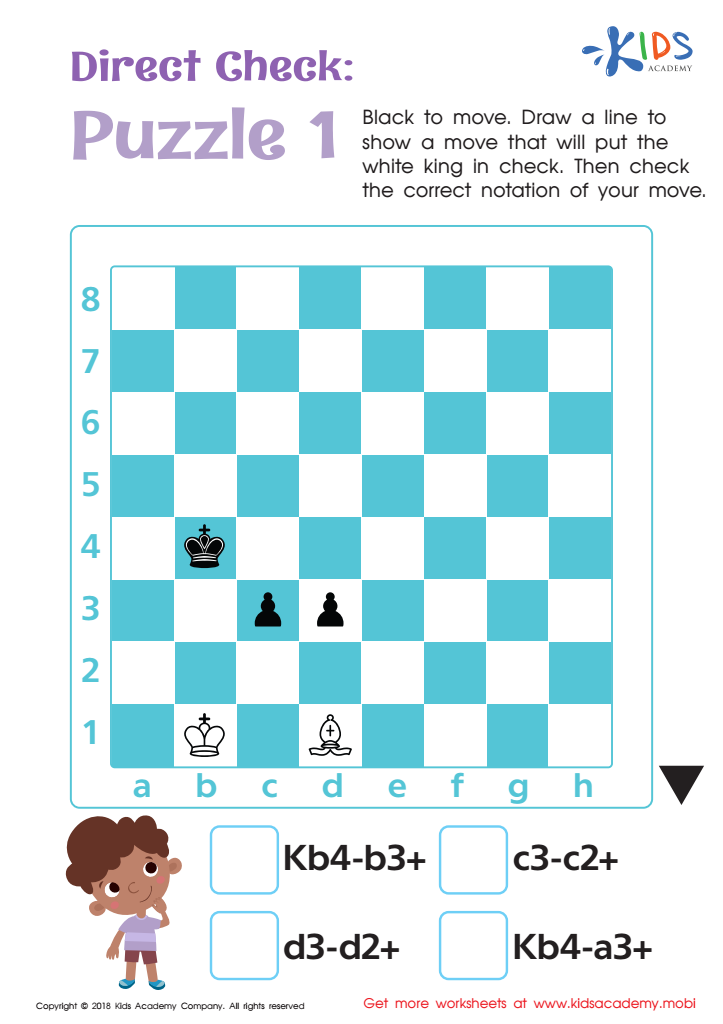

Direct Check: Puzzle 1 Worksheet
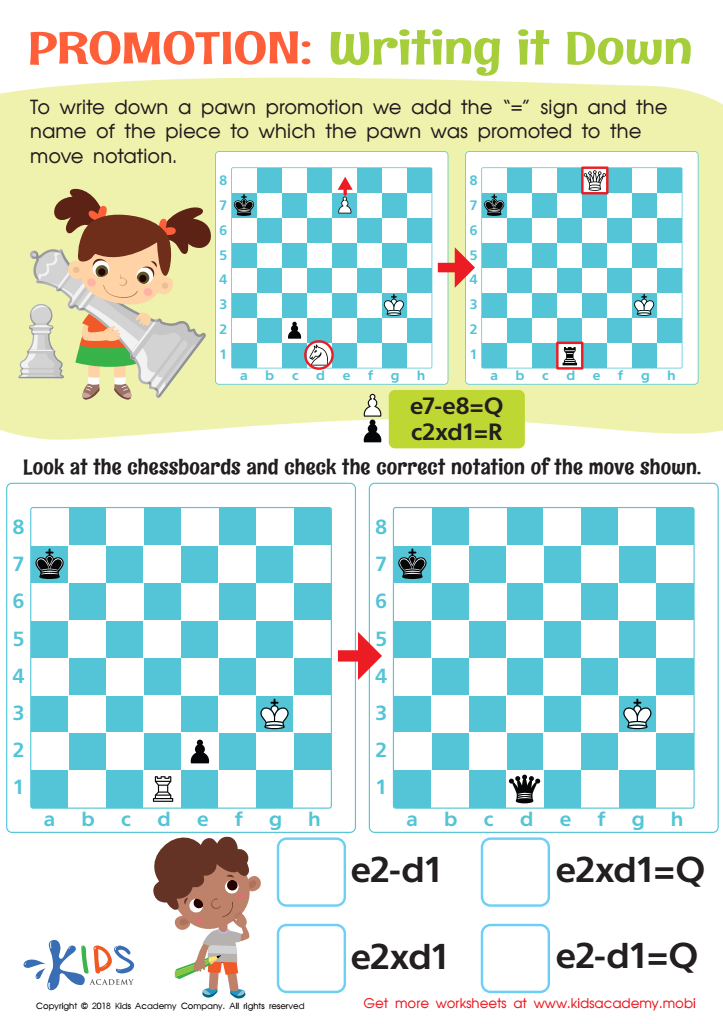

Writing it Down Worksheet
Number Recognition Chess for ages 3-6 offers a delightful blend of education and play, which is crucial for young children's development. Parents and teachers should care about this game as it introduces numerical concepts in a structured yet engaging format. By combining the classic game of chess with number recognition, children expand their cognitive abilities while having fun.
Firstly, playing this game can significantly enhance a child's numerical skills and counting abilities—fundamentals of early mathematics. Identifying and understanding numbers are the initial steps toward forming a solid foundation for more complex mathematical concepts later in life.
Secondly, Number Recognition Chess fosters critical thinking and problem-solving skills. As children decide which move to make, they practice strategic thinking and learn consequence evaluation, skills transferable to many areas of life.
The game also develops social skills and patience. Chess environments encourage turn-taking, respecting rules, and graceful winning and losing. Such experiences shape not only mathematical minds but kind and respectful characters.
Lastly, children’s interest and motivation to learn are higher in play-based settings. Number Recognition Chess captures their attention, making educational experiences enjoyable. For these reasons, integrating this game into learning can have significant, long-lasting benefits for early childhood development.

 Assign to the classroom
Assign to the classroom
